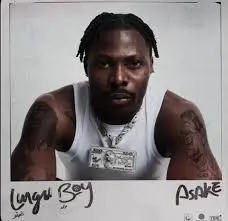Rapper Young Thug, whose real name is Jeffery Williams, pleaded guilty in Atlanta on Thursday to charges related to gang activity, drugs, and firearms. Although he has been released from jail, his freedom comes with strict conditions; any violation could result in him returning behind bars.
His decision to plead guilty came without a formal deal from prosecutors, as negotiations between his defense and the prosecution team broke down. This placed the power of determining his sentence solely in the hands of Fulton County Superior Court Judge Paige Reese Whitaker.
Young Thug’s guilty plea brings an end to a lengthy legal ordeal. His charges stemmed from an arrest made two and a half years ago, with prosecutors presenting evidence in a protracted trial that officially began nearly a year ago.
Jury selection alone, which started in January 2023, lasted around ten months, complicating the proceedings. Since November of that year, prosecutors have presented a stream of witnesses in a case involving six defendants, all tied to the allegations against Young Thug and his associates.
The trial faced repeated delays, adding to the mounting legal challenges. One significant interruption occurred in July when the initial judge was recused after two defendants requested his removal. They cited a meeting he had held with prosecutors and a state witness as grounds for potential bias.
This disruption brought further complications to an already complex case that had attracted considerable public and media attention.
In his plea, Young Thug admitted guilt on multiple counts, including one gang-related charge, three drug charges, and two gun-related charges. Additionally, he submitted a no-contest plea to another gang-related charge and a charge of racketeering conspiracy.
This no-contest stance means that while he does not admit guilt, he accepts the punishment as if he had pleaded guilty. Judge Whitaker issued a sentence that reflected both his guilt and an attempt at rehabilitation.
Judge Whitaker sentenced Young Thug to a total of 40 years. The first five years are commuted to time already served, followed by 15 years of probation. If he complies with all the conditions of his probation, the remaining 20 years will also be commuted to time served.
However, any violation during this probation could result in him having to serve those 20 years in prison in addition to penalties for the probation breach.
A critical condition of Young Thug’s probation is his restriction from metro Atlanta for the first 10 years, with limited exceptions for family occasions like weddings, funerals, and graduations. However, Judge Whitaker mandated that he return to the city four times a year to deliver live presentations on anti-gang and anti-gun violence at schools or community organizations.
This requirement will count towards the 100 annual hours of community service that he is required to complete during his probation.
Further restrictions include prohibiting Young Thug from associating with known gang members or victims and defendants involved in his case, with exceptions for his brother and fellow rapper Gunna due to contractual obligations.
He is also forbidden from using gang-related terminology or symbols that could promote gang activity, a measure designed to limit his influence in those circles and encourage a more positive public persona.
Young Thug’s sentence includes additional conditions aimed at ensuring compliance. He must submit to random drug screenings and is prohibited from possessing firearms. However, he retains permission to travel nationally and internationally for professional purposes, even while on probation.
Prosecutors had originally pushed for a more stringent sentence, asking for 45 years, with 25 years to be served in prison and the remaining time on probation.
In court, prosecutor Adriane Love highlighted evidence against Young Thug, which included references to his rap lyrics, arguing that these lyrics implicated him in gang activities. The defense, however, took issue with this approach.
Brian Steel, Young Thug’s lead attorney, argued that the evidence presented was weak and labeled the use of lyrics as “offensive.” He maintained that his client was “falsely accused” and questioned the legitimacy of the case against him.
Steel disclosed that he had advised Young Thug to proceed to a jury verdict, as he felt confident in their chances of winning. Yet, Young Thug ultimately decided to plead guilty, citing a desire to reunite with his family, especially his children, who he felt were “hurting” during his absence.
Steel petitioned the judge to impose a sentence of 45 years with five years commuted to time served, followed by a lengthy probation period.
Young Thug himself addressed the court, expressing regret for his past decisions. Acknowledging his mistakes, he asked the judge to let him go home, assuring that he would avoid such situations in the future.
He expressed gratitude for the chance to redeem himself and mentioned how he had risen from difficult circumstances but hadn’t fully appreciated his success, promising to make better choices moving forward.
Judge Whitaker acknowledged his impact on the youth, recognizing that while rap music may involve posturing, its messages can significantly influence young audiences. She encouraged him to use his talents and global platform to promote positive values, urging him to be “more of the solution and less of the problem.” Her closing remarks underscored a hope that he would actively work to prevent others from making similar mistakes.
Young Thug’s career, which saw him found his own record label, Young Stoner Life (YSL), has been marked by tremendous success in the music industry. However, prosecutors argued that he co-founded a violent criminal organization known as Young Slime Life.
His arrest in 2022 led to a sweeping indictment that implicated over two dozen individuals, alleging violations of Georgia’s anti-racketeering law and involvement in gang, drug, and gun-related crimes.










